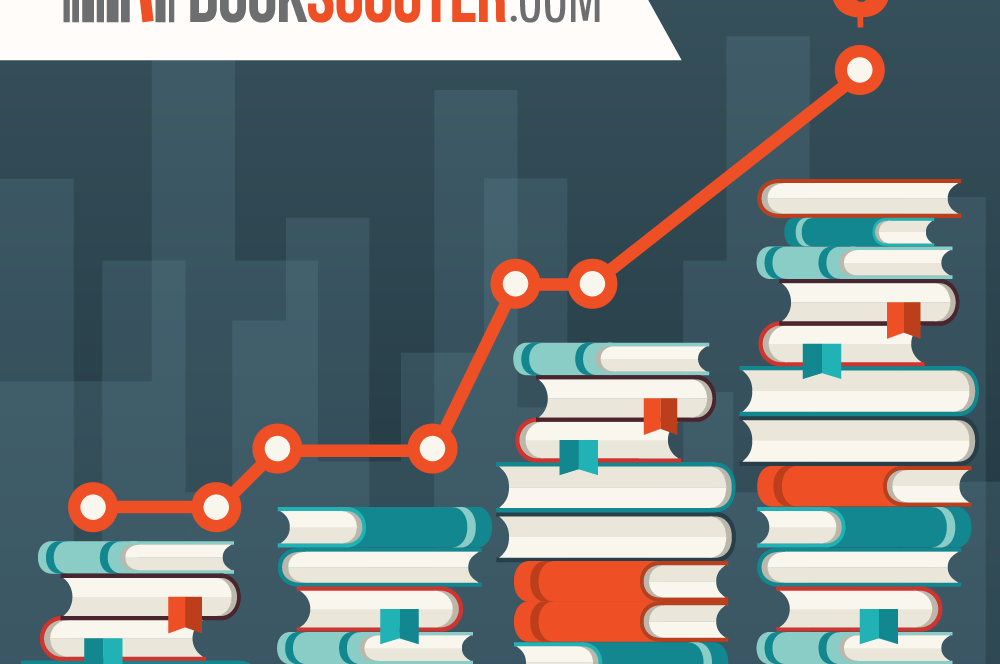Last Updated on September 23, 2021 by BookScouter
It’s time to buy books for next semester! College students reach deeper into their pockets each year to foot the bill for textbooks. The Bureau of Labor Statistics made us aware of the rising cost of college textbooks: the prices have risen 1,041% since 1977. Even factoring in inflation, the sale of used books, and non-market transactions, it’s a huge number.
Reasons for The Increase in The Cost of Textbooks
Short Usage Cycle of College Textbooks
In recent years, publishers have issued textbooks in a two-to-four-year cycle. Basically, your used books are losing value quickly, and you’re more likely to drop money on a new one.
Professors Disregard The Rising Cost of Textbooks
Professors often disregard cost when assigning the latest versions of textbooks. The updated versions feature small changes, like rephrased copy and newer photos, not to mention the insertion of outdated pop-culture references.
Useless Attachments Add to The Cost of Textbooks
Publishers attach E-text and supplemental material to textbooks that raise the price. Like a CD in the back of a textbook you never used but somehow managed to lose by the end of the semester. A study found that 64% of professors rarely or never used the extra material. Those supplemental materials can make the textbook cost twice as much.
Beware of Statistics
You may be thinking, “Wow! 1,041% is a huge number.” In fact, several organizations dispute this number, including:
The Association of American Publishers claims that viewing the increase as a percentage misrepresents the cost. If a textbook is $50 and then $100, its price increases by 100%. True, the price change can seem small compared to larger numbers, but the costs add up.
The National Association of College Stores reprimanded the College Board for estimating textbook costs rather than using collected data. NACS calculated textbook costs as half of the College Board’s predicted $1,200. The NACS accused numerous media outlets of misreporting the statistics by omitting that the calculated cost was estimated.
On the other hand, NACS only factors in books bought at college bookstores, excluding books bought from friends or used books sites.
Needless to say, the rising cost of textbooks is a problem. The NACS itself recognized the issue of higher education costs and partnered with a Congressional committee to address higher education expenses in the United States.
How to Lower the Cost of Textbooks
Though prices are increasing and your textbooks lose value, they still have value. Trust www.bookscouter.com to find the best selling price for your books. Take those textbooks out of the closet, drawer, or bonfire (preferably not charred to a crisp), and check out our site to find the best price for your textbooks.
Renting textbooks is another good strategy that can help you fight the rising cost of college textbooks and lower your college expenses. Read our tips in the article below!


